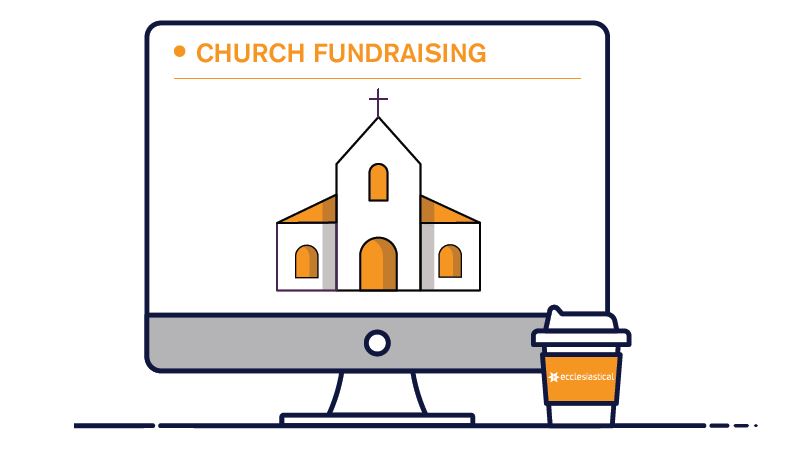Church Fundraising during the cost-of-living crisis
Fundraising during a cost-of-living crisis can feel rather daunting: with pressure from higher levels of inflation, rising energy costs and rapidly increasing mortgage rates.

Ecclesiastical asked fundraising experts, Philanthropy Company, for their top tips to help your church to move forward with its fundraising plan during these challenging times.
1. Set the right tone
Now, more than ever, people need to feel comfortable that they are giving within their means. Your communications need to stress that your church is looking to those that can afford to give and there’s no pressure on anyone that can’t support at this time. Be inclusive – even the smallest amount is welcome and will make a difference to your church.
2. Look after your existing donors
As a rule of thumb, 80% of your income will come from past supporters as opposed to cold prospects, so it makes sense to invest the majority of your time in good stewardship or “customer service”. This is even truer in a cost-of-living crisis when attracting new gifts can be challenging. Keep your current donors informed of the need for their continued support, thank them appropriately and engage with them so that they can see the impact of their generosity and are encouraged to continue to give.
3. Be open about the need
Many church projects, especially if they involve buildings and faculty, can take years to come to fruition. It’s a good idea to have your project costings updated in line with current prices. Be honest if costs have escalated since the project was conceived. People will understand increasing costs, because of their own experience, but you should avoid publicising a target and then having to ask for more because it was based on outdated estimates.
4. Cast the net as wide as possible
There is real competition for grants and donations, as many charities, including churches, are finding the cost-of-living crisis challenging. Consider applying to a far wider range of funders and sources than usual. You’ll need to have a good quality Case for Support, which can be adapted for applications to different funders. When expanding your targeted funders, do check their funding criteria carefully to ensure that you don’t waste your time by applying if there is no clear match between their aspirations and your church’s needs.
5. Reassess project aims to meet emerging needs
As the cost-of-living crisis continues, it’s worth re-examining existing projects to see how they could help those in need. For example, if you run a food bank, would your local community benefit from adding a hygiene bank to the existing provision? Adapting or evolving your projects can attract new volunteers and donors as people are inspired by your offering and vision, which will also be welcomed by potential funders.
6. Consider if your existing projects qualify for new schemes
Many church buildings are already busy as community hubs and many local authorities are offering funding for ‘warm spaces’. These don’t always need to be new setups: existing social groups or lunch clubs may qualify for this funding. Schemes such as these could help your church to offset the increased energy bills faced by your church.
7. Seek to collaborate with others
Many small and local charities are facing similar challenges in addressing the cost-of-living crisis. If your church has a building and maybe some staffing, you may be able to work with another local charity to support your local community. This could be as simple as offering the use of your hall or a volunteer for a couple of hours, thus widening your reach and attracting new resources while helping the local community.
8. Be realistic
It’s important to recognise that each church’s circumstances and ability to respond to rising costs will differ. If project costs have escalated or a major funding stream doesn’t materialise, then it’s important to pause, take stock and replan. Being realistic will help you to manage expectations rather than carrying on blindly and hoping for the best.
As many churches have said, fundraising during a cost-of-living crisis can feel rather difficult. We hope that these tips will help your church to feel more confident about fundraising success even in challenging economic times.

Disclaimer
This guidance is provided for information purposes and is general and educational in nature. Nothing constitutes legal advice. You are free to choose whether or not to use it and it should not be considered a substitute for seeking professional legal help in specific circumstances. Where links are provided to third-party sites and resources, these links are provided for your information only. Ecclesiastical Insurance is not responsible for the contents of those sites or resources.
